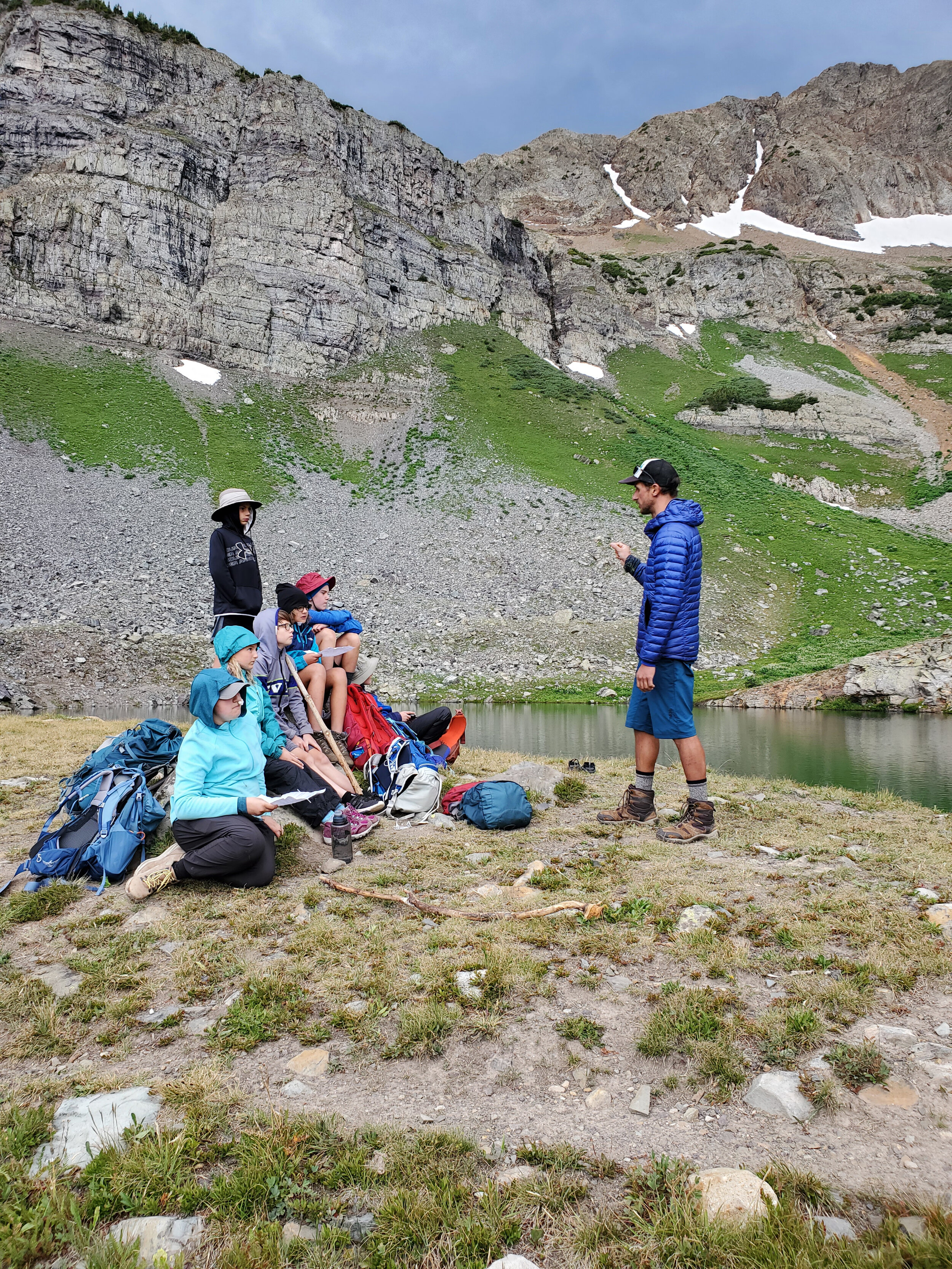EUREKA! Environmental Institute Teaches Science and Outdoor Skills, While Building Confidence in Kids
Photos courtesy of EUREKA! McConnell Science Museum
When Adam Bavier joined the staff at EUREKA! McConnell Science Museum in February 2020, there was no way he could have imagined the positive impact he — and the museum — would have on kids during this tumultuous year.
Bavier was tasked with creating a new Environmental Institute as a means of incorporating outdoor learning and field work into the museum’s hands-on indoor programming. The goal was to offer year-round opportunities to elementary and secondary students with an emphasis on students in grades third through fifth and sixth through ninth.
The inspiration for this new program came from EUREKA!’s Executive director Jenn Moore. Prior to her work at EUREKA!, Moore was the project manager and director of the Natural Resources Management program at Colorado Mountain College in Leadville. In this role, she took college students into the field to do research on conservation projects.
“I would watch their minds grow when presented with outdoor learning experiences. They were learning science and math, but also developing a deep innate passion for hands-on inquiry,” Moore explains.
Based on this, Moore was certain that EUREKA! could offer younger students similar opportunities with a combination of multi-day overnight expeditions and single-day excursions.
Against all odds, and thanks to Mesa County’s low COVID-19 case load throughout the spring and early summer, Bavier and EUREKA! were able to implement their ambitious plans and give a diverse group of local children some lock-down relief. They were also able to offer scholarships to families that otherwise couldn’t afford to participate, thanks to generous support from Alpine Bank.
Environmental Institute Director Adam Bavier teaches students about pika habitat prior to monitoring pika populations in the Ragged Wilderness. (Photo taken before pandemic mask requirements.)
“We were happy to give kids a place where they could engage with their peers and decompress after weeks at home,” explains Bavier. And, while Bavier recognized that there was “always a chance” that plans would have to change or be canceled, the summer programming was a resounding success.
A highlight of the summer included a hut trip near Vail where students collected data for a pika monitoring survey in partnership with the Front Range Pika Project. And, while EUREKA! staff assumed that the multi-day expeditions would build the most excitement, the day trips proved to be especially impactful, with high demand for local experiences including rafting, mountain biking and climbing, always coupled with science.
As for the kids, getting outdoors and getting unplugged made a big impact on them.
Two students, Cormac (age 11) and Evy (age 8) both commented on surveys that their days spent with EUREKA! were “better than Minecraft,” while another, Hayden (age 13), put it this way, “I don’t even miss my phone.”
Other benefits to students — that they themselves recognized — included making new friends, building confidence, having new experiences and bonding with peers, especially when they’d had difficulty with that in the past.
As for fall and winter programming, EUREKA! has partnered with Colorado West Land Trust to include students in a native plant restoration project at Lunch Loops, a popular trail head for hiking and mountain biking. Other winter programming includes ice science in No-Thoroughfare Canyon on the Colorado National Monument, snowpack science on the Grand Mesa and a hut trip to Leadville for a snow science and wildlife response program with Rocky Mountain Biological Labs.
With COVID-19 infections still among us, maintaining health and safety are also part of the learning.
“We won’t put students or their families at risk,” shares Bavier. “Groups like the National Outdoor Leadership School and Outward Bound have created best practices for keeping kids safe in a field environment, and we are following these, as well as the protocols being used in schools.”
Best practices include each child having their own equipment and gear, separate sleeping quarters on overnight trips, with only siblings being allowed to share rooms, masks required indoors and in vehicles, and a new requirement for social distance when having a “mask break,” even if they’re outdoors.
For Moore, the primary benefit of the EUREKA! Environmental Institute is that through hands-on participation, children create their own learning paths.
“We are not spoon-feeding them information,” she explains. “Instead, we allow them to learn from experience, develop their own questions and interests and to become resilient when faced with challenges.”
“The Environmental Institute allows our staff and students the freedom to explore while learning,” she adds. “As a classroom, the outdoors is so much bigger, and offers so much more, than learning from a textbook indoors.”
Spring 2021 Environmental Institute Programs
3-5th Graders Traveling Day Programs
January 4-5: Science of Ski Touring
February 15: Ice Cave Adventure in Rifle
March 11-12: Petroglyphs and Fossils
March 23: Science, Snowshoeing and Sledding
March 25-26: Beginner Mountain Biking and Conservation
March 25-26: Intermediate/Advance Mountain Biking and Conservation
May 14: Spring Climbing and Geology
5-8th Graders Traveling Day Programs
Jaunary 18-19: Science of Ski Touring
March 25: Snow Ecology
March 26: Ouray Ice Exploration
March 25-26: Beginner Mountain Biking and Conservation
March 25-26: Intermediate/Advanced Mountain Biking and Conservation
Visit eurekasciencemuseum.org for more information.
Originally published in the Winter 2020-21 issue of Spoke+Blossom.


